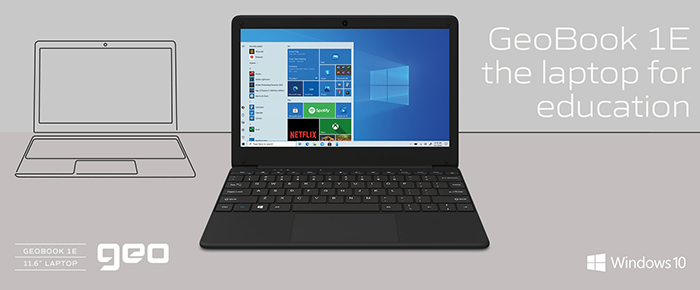With the pandemic lockdown in the UK looking like it still has several more months to run, making sure children can continue their education at home is an important task for the government to facilitate. To this end you might have heard various reports about free laptops for schools and free laptops for children in the UK. Using a modern laptop and broadband internet connection students can have access to online classes, lesson plans, resources, and can interact with their teachers. The UK government thus plans to buy and distribute over a million laptops to disadvantaged children via their schools. So far the UK government has sent schools 800,000 laptops as part of this plan, reports the BBC.

The above sounds like a great idea, and most would agree it is a good use of government funds. However, there have been a number of problems spotted with the free laptops rollout. Last year I remember reading about the slow rollout of devices and the price the government is paying for these laptops compared with their considered 'street value'. Similar concerns remain, but in the headlines this weekend was another problem: some GeoBook 1E laptops that schools have received from contract award winner Computacenter have come packing Malware.
Various reports on educational forums confirm that batches of the GeoBook 1E laptops have been found to be infected with the Gamarue.I worm. This self-propagating worm was first identified by Microsoft in 2012 and is a "presents a very severe threat to any PC or network," according to a security consultant speaking to the BBC. The Department for Education (DfE) said it is looking into the problem as a matter of urgency but reckons that the Russia-connected malware is only on a small number of devices.
Moving along to discussing the hardware being delivered, the batches of GeoBook 1E laptops arriving at schools appears to deliver the absolute minimum of requirements. The official specs of the devices are given here by the UK government, and here is a link to the GeoBook 1E specs page.
In brief the GeoBook 1E has an Intel Celeron CPU, 11.6-inch FHD IPS screen, Windows 10 S Home (64-bit), 4GB LPDDR3 memory, eMMC 32GB/64GB storage, supports microSD cards up to 128GB, has various USB and AV interfaces, has a 0.3MP webcam, offers Wi-Fi & Bluetooth 4.0 connectivity, weighs just over a kilo, and can run on battery for about 6 hours.

According to research by the Good Law Project, this latest batch of laptops bought by the Department for Education were bought from Computacenter, a firm founded by a major Conservative party donor. It says that the DfE has placed orders worth £39.7m with Computacenter and for that 192,400 of these devices are expected to be delivered to schools. Simple maths suggests a price of £206 per device.
The £206 per device price might seem pretty reasonable even if you consider the dire specs outlined above. Checking out high street store Currys in the UK, I can see I can get a similar spec 11.6-inch Asus or Lenovo branded 4GB RAM/64GB eMMC machine for £199. However, an 'education IT expert' told the Good Law Project that he thought a business could have secured these laptops direct from an OEM for less than £100 a piece.













